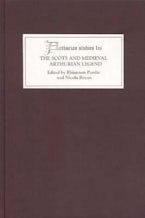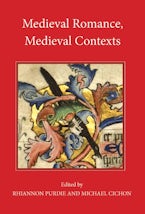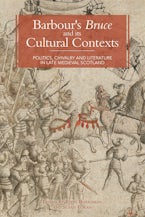
The Trojan Legend in Medieval Scottish Literature
- Description
- Contents
- Reviews
First full-length treatment of the Trojan legend in medieval Scottish literature, showing the various uses for, and the ways in, which it was deployed.
The Trojan legend became hot property during the Anglo-Scots Wars of Independence. During the late thirteenth and early fourteenth centuries, the English traced their ancestry to Brutus and the Trojans and used this origin myth tobolster their claims to lordship and ownership of Scotland; while in a game of political one-upmanship, and in order to prove Scotland's independence and sovereignty, Scottish historians instead traced their nation's origins to aGreek prince, Gaythelos, and his Egyptian wife, Scota.
Despite the wealth of scholarship on the Trojan legend in English and European literature, very little has been done on Scotland's literary response to the same legend,even though a mere glance at the canonical material of late medieval Scotland indicates that it remained equally current north of the Border, a gap which this book fills. Through a detailed analysis of a range of Older Scots textsfrom c. 1375 to c. 1513, notably The Scottish Troy Book, Henryson's Testament of Cresseid, and Douglas' Eneados, it provides the first comprehensive assessment of the Scottish response to the Trojan legend. It considers the way in which Scottish texts interact with English counterparts, such as Geoffrey of Monmouth's Historia, Chaucer's Troilus, Lydgate's Troy Book, and Caxton's Eneydos, and demonstrates how despite - or perhaps because of - its use in the Anglo-Scots Wars of Independence, the Trojan legend was for the most part neither neglected nor pejoratively treated in Older Scots literature. Rather, the Matter of Troy and related Matter of Greece were used not just as an origin myth, but also as a metaphor for Anglo-Scots political relations, guide to good governance, and locus through which poets might explore broader issues of literary tradition, authority, and the nature of poetic truth.
Emily Wingfield is a lecturer in English at the University of Birmingham.
The Trojan legend became hot property during the Anglo-Scots Wars of Independence. During the late thirteenth and early fourteenth centuries, the English traced their ancestry to Brutus and the Trojans and used this origin myth tobolster their claims to lordship and ownership of Scotland; while in a game of political one-upmanship, and in order to prove Scotland's independence and sovereignty, Scottish historians instead traced their nation's origins to aGreek prince, Gaythelos, and his Egyptian wife, Scota.
Despite the wealth of scholarship on the Trojan legend in English and European literature, very little has been done on Scotland's literary response to the same legend,even though a mere glance at the canonical material of late medieval Scotland indicates that it remained equally current north of the Border, a gap which this book fills. Through a detailed analysis of a range of Older Scots textsfrom c. 1375 to c. 1513, notably The Scottish Troy Book, Henryson's Testament of Cresseid, and Douglas' Eneados, it provides the first comprehensive assessment of the Scottish response to the Trojan legend. It considers the way in which Scottish texts interact with English counterparts, such as Geoffrey of Monmouth's Historia, Chaucer's Troilus, Lydgate's Troy Book, and Caxton's Eneydos, and demonstrates how despite - or perhaps because of - its use in the Anglo-Scots Wars of Independence, the Trojan legend was for the most part neither neglected nor pejoratively treated in Older Scots literature. Rather, the Matter of Troy and related Matter of Greece were used not just as an origin myth, but also as a metaphor for Anglo-Scots political relations, guide to good governance, and locus through which poets might explore broader issues of literary tradition, authority, and the nature of poetic truth.
Emily Wingfield is a lecturer in English at the University of Birmingham.
Introduction
Troy in the Older Scots Historical Tradition
Troy in the Older Scots Romance and Nine Worthies Tradition
The Scottish Troy Book
Chaucer's Troilus and Criseyde and Henryson's Testament of Cresseid
Gavin Douglas' Eneados
Conclusion
Appendix
Troy in the Older Scots Historical Tradition
Troy in the Older Scots Romance and Nine Worthies Tradition
The Scottish Troy Book
Chaucer's Troilus and Criseyde and Henryson's Testament of Cresseid
Gavin Douglas' Eneados
Conclusion
Appendix
"[P]rovides a useful synopsis of Scottish response to the myth of Troy during the manuscript and early print eras." SCOTIA
"A comprehensive guide to a fascinating body of work." JOURNAL OF THE EDINBURGH BIBLIOGRAPHICAL Society vol. 9, 2014
Hardcover
9781843843641
January 2014
$115.00 / £75.00
Ebook (EPDF)
9781782042020
January 2014
$29.95 / £24.99






